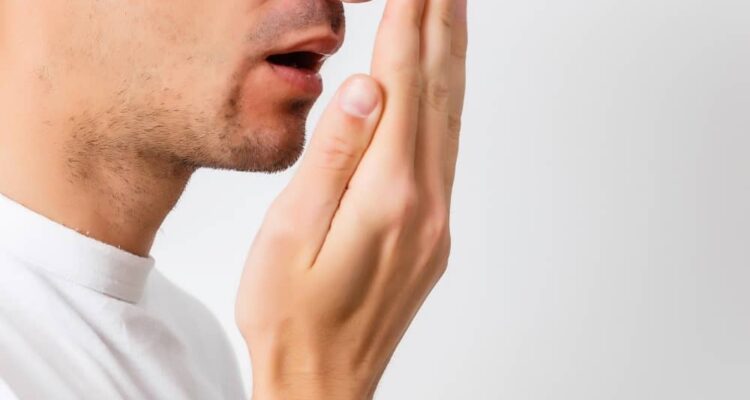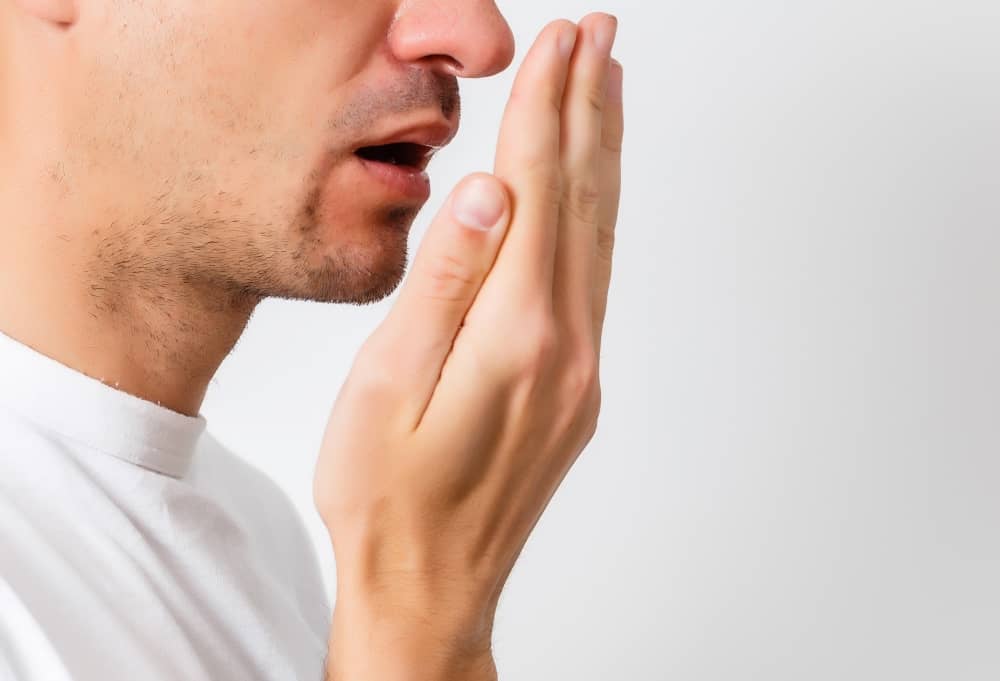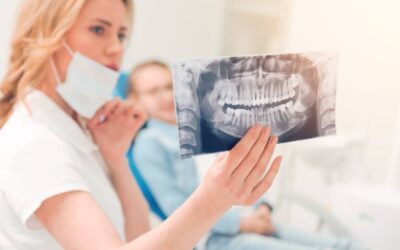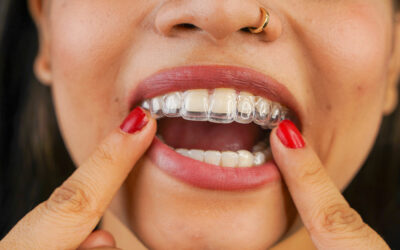Have you ever felt insecure over bad breath? This issue, also known as halitosis, is embarrassing but you aren’t alone.
Bad breath is an extremely common issue that can have a negative impact on a person’s daily life, confidence, and even health.
In this article, we will explain what causes bad breath, as well as simple steps you can do to help prevent bad breath.
What Causes Bad Breath?
The oral cavity is filled with bacteria that aid in the process of digestion by breaking down the proteins in the foods we eat, such as dairy and meat.
However, as the bacteria perform their function, they unleash vaporous sulphur compounds, leading to an unpleasant odour in the mouth.
Furthermore, as the bacteria feast on the food proteins in your mouth, they begin to reproduce. The more active they are and the more the bacteria spread, the worse your bad breath will be.
There are many causes of bad breath, including:
- Strong-flavoured foods (i.e. onions, garlic)
- Certain medicines
- Gum disease
- Tooth decay
- Smoking
- Dry mouth
Some of the less common causes of bad breath include:
- Acid reflux
- Bile reflux from the stomach
- Kidney failure, metabolic dysfunctions, biochemical disorders, and certain medical conditions
- Post-nasal discharge
Here, we’ll take a closer look at some of the most common causes of bad breath.
Dry Mouth
A dry mouth, whether caused by a medical condition, alcohol, stress, or medicine, means bacteria are not washed away as often.
This allows foul odours and substances to build up in the mouth. A lack of saliva production is a big reason so many people wake up with bad breath in the morning.
Poor Oral Hygiene
Poor dental hygiene is one of the leading causes of halitosis. When food debris is left in the mouth, bacteria feast on it and create unpleasant odours. The longer food particles sit in the mouth, the worse your breath will get.
To help keep your breath smelling fresh and your mouth healthy, ask your dentist about how to improve your oral hygiene routine. Along with brushing twice a day and flossing every day, your dentist may suggest a tongue scraper, alcohol-free mouthwash, or water flosser enhance your oral hygiene routine.
If you wear dentures, be sure to clean them regularly and properly to prevent bad breath.
Underlying Medical Conditions
Along with being embarrassing and unflattering, bad breath can also indicate a more serious underlying issue with your overall health.
Although less common, halitosis can be a result of an underlying medical condition. This makes it important to see a dentist if you have concerns about bad breath.
Your dentist can rule out any underlying medical conditions and determine the best route of treatment. If a medical condition is suspected, your dentist can refer you to a physician for further evaluation.
Certain Foods
Potent, strong-flavoured foods, especially those containing sulphur compounds, can cause bad breath.
Some of the worst foods for bad breath include:
-
- Garlic
- Onion
- Chives
- Leeks
- Brussel sprouts
- Spicy foods
- Broccoli
- Cauliflower
High-protein foods, such as meat and dairy, can cause your breath to smell as oral bacteria breaks down the protein.
When consuming foods containing protein, it is important to drink adequate amounts of water or chew sugar-free gum afterwards to help cleanse any food remnants from your mouth.
You may also want to brush your teeth after consuming such foods to help prevent bad breath.
Dental Conditions
Dental conditions such as tooth decay, infection, and gum disease are common causes of halitosis. Be sure to see your dentist regularly to ensure any dental conditions get caught early and treated immediately.
Smoking
Along with the many negative effects it has on health, smoking also depletes the mouth of oxygen. This contributes to dry mouth and makes bad breath worse.
Smoking also leads to many harmful effects on oral health. Smoking promotes tooth decay, plaque formation, infection, and gum disease, which are all factors that can lead to bad breath.
What Are the Symptoms of Halitosis?
Common symptoms of halitosis include:
- Dry mouth
- A white coating on the tongue, especially near the back
- A film built up on the teeth
- Post-nasal drip
- A constant bitter, metallic, or sour taste in your mouth
- Thick saliva
- A constant urge to clear your throat
Ways to Beat Bad Breath
Provided your condition is not a result of a more serious issue, it is possible to beat bad breath and restore your confidence.
Because the bacteria in your mouth recur naturally, there is no way to eliminate them.
However, there are simple steps you can take to help manage the odour and fight bad breath.
Drink Water Frequently
Sipping on water throughout the day provides many health benefits, including helping to increase saliva production. Promoting saliva production is a key way to help fight bad breath.
Saliva provides many important roles for the mouth, including:
-
- Clearing away food particles so odour-causing bacteria have less to feed on
- Counteracting acids formed by plaque
- Decreasing plaque production
- Promoting remineralisation of tooth enamel
- Defending against bacteria that cause tooth decay
On the other hand, decreased saliva production creates a dry mouth, creating the perfect environment for odour-causing bacteria to thrive and cause bad breath.
Be sure to drink water throughout the day to help keep your mouth moist and fight bad breath.
Take Care After Consuming Foods High in Sulphur
Sulphur compounds in foods have an adhesive property, allowing the smell to remain on your breath long after consuming them.
Therefore, it can be helpful to chew sugar-free gum or brush your teeth following the consumption of sulfuric foods to help neutralise the compounds’ effect on the breath.
Brush Your Teeth Properly
Poor oral hygiene is the leading cause of bad breath. Neglecting to brush your teeth using the proper brushing techniques, or not brushing your teeth often enough, allows food particles to remain in your mouth.
When food debris is not cleared away, it contributes to plaque buildup and bad breath. Be sure to brush your teeth at least twice a day using the proper brushing techniques to avoid leaving traces of food behind.
Related Reading: How to Brush Your Teeth Properly
Clean Your Tongue
Regular brushing and flossing help get rid of bacteria on your teeth and gums. But did you know your tongue can also be a breeding ground for bacteria?
If your tongue has a white coating, it is a clear sign it is harbouring bacteria. When bacteria and food remains are left to linger on the tongue, it can lead to a thin, white coating that can cause bad breath.
Be sure to clean your tongue at least once a day to help keep your tongue free of odour-causing bacteria.
You can simply use your toothbrush and some toothpaste to clean your tongue or purchase a tongue scraper. Always use gentle pressure when cleaning your tongue to prevent injuring it.
Related Reading: How to Clean Your Tongue and Keep It Healthy
Floss Every Day
Even with regular brushing, food particles can remain in between the teeth and in the gum line, which can cause bad breath.
Left untreated, the bacteria from the decaying food particles can build up and eventually cause an infection, which can then travel down into the jawbone and cause tooth loss.
Therefore, be sure to floss at least once a day to remove food remains from your teeth that can cause bad breath and jeopardise your oral health.
Snack Healthy
Eating hard fruits and vegetables can help naturally clear away food particles and odour-causing bacteria that contribute to bad breath.
Try snacking on crunchy vegetables and fresh fruits between meals to help keep your teeth clean and your breath fresh.
The best foods to fight bad breath include:
-
- Celery
- Carrots
- Apples
- Unsweetened yoghurt
- Melons
- Parsley
- Basil
- Pears
- Sugarless gum
- Cucumbers
Visit Your Dentist Biannually for General Checkups
Even with excellent dental habits, stubborn bacteria could still be lurking. Left unaddressed, this bacteria can thrive and lead to serious dental issues that can prevent you from enjoying your own beautiful, natural teeth for life.
Visiting your dentist at least twice a year for general checkups ensures that early signs of tooth decay, cavities, and periodontal disease are identified as early as possible.
Early treatment of gum disease and tooth decay improves treatment outcomes, reduces cost, and prevents further harm to your teeth and oral health.
The dentist will also perform a professional cleaning that is specifically designed to remove hard, stuck-on plaque that is difficult to brush away at home.
Related Reading: The Benefits of Regular Dental Checkups
When Should I See My Dentist for Bad Breath?
If your halitosis lasts longer than a few hours and happens often, contact your dentist about your bad breath concerns.
Your dentist will evaluate your oral health and check for underlying causes of bad breath, including gum disease, infection, or tooth decay.
After a thorough evaluation, your dentist will educate you on how to improve your oral hygiene and put together the best treatment for bad breath.
Do You Have Concerns About Bad Breath?
If you suffer from bad breath, you are not alone. Everyone will experience it at one time or another in their life.
However, you don’t have to live with halitosis.
Try incorporating these tips to help prevent bad breath and see your dentist if you do not experience improvements.
At 123 Dental, we are here to help with all of your oral health concerns. If you are dealing with bad breath, please contact us and we will gladly help you set up a consultation to address your concerns.










